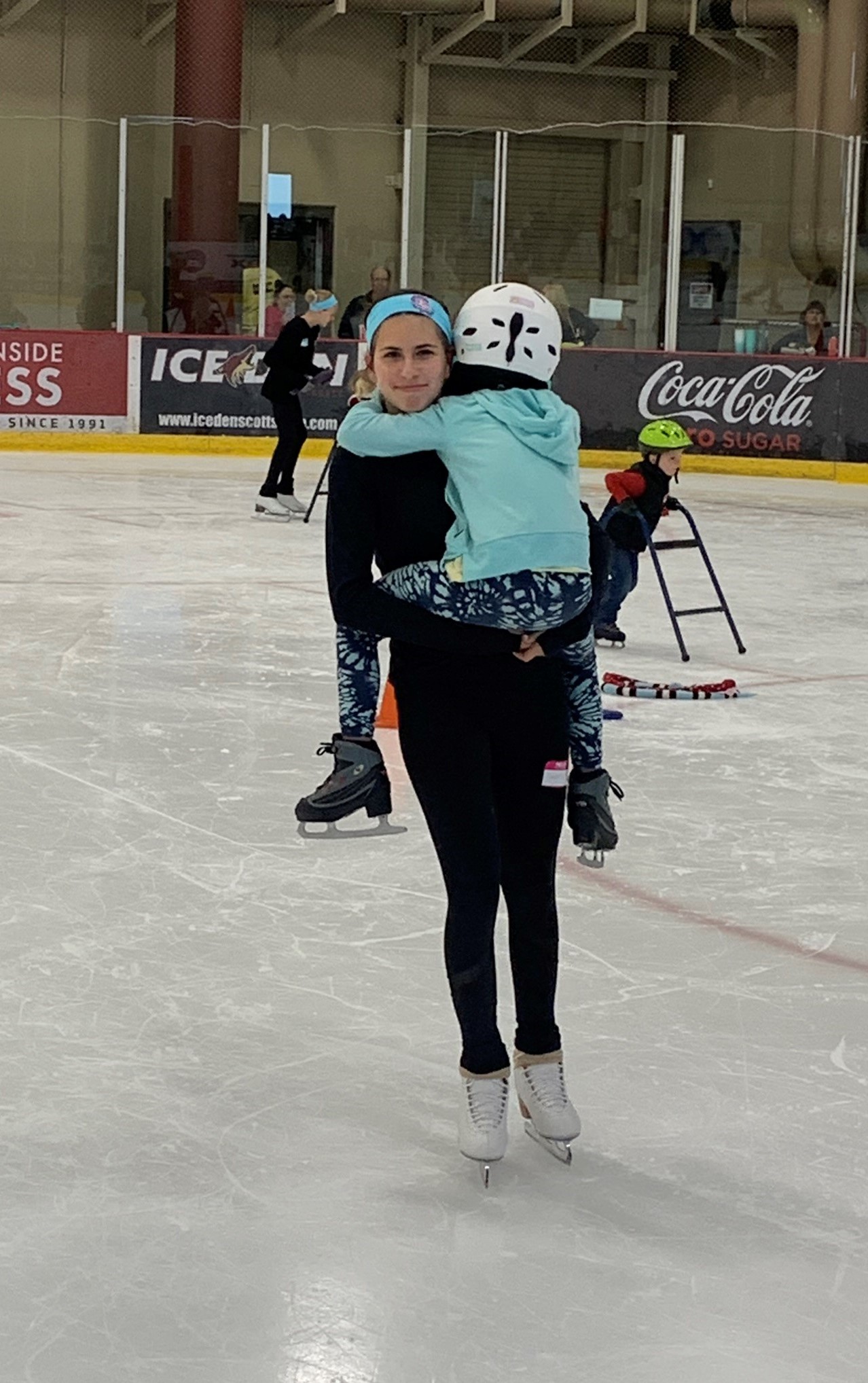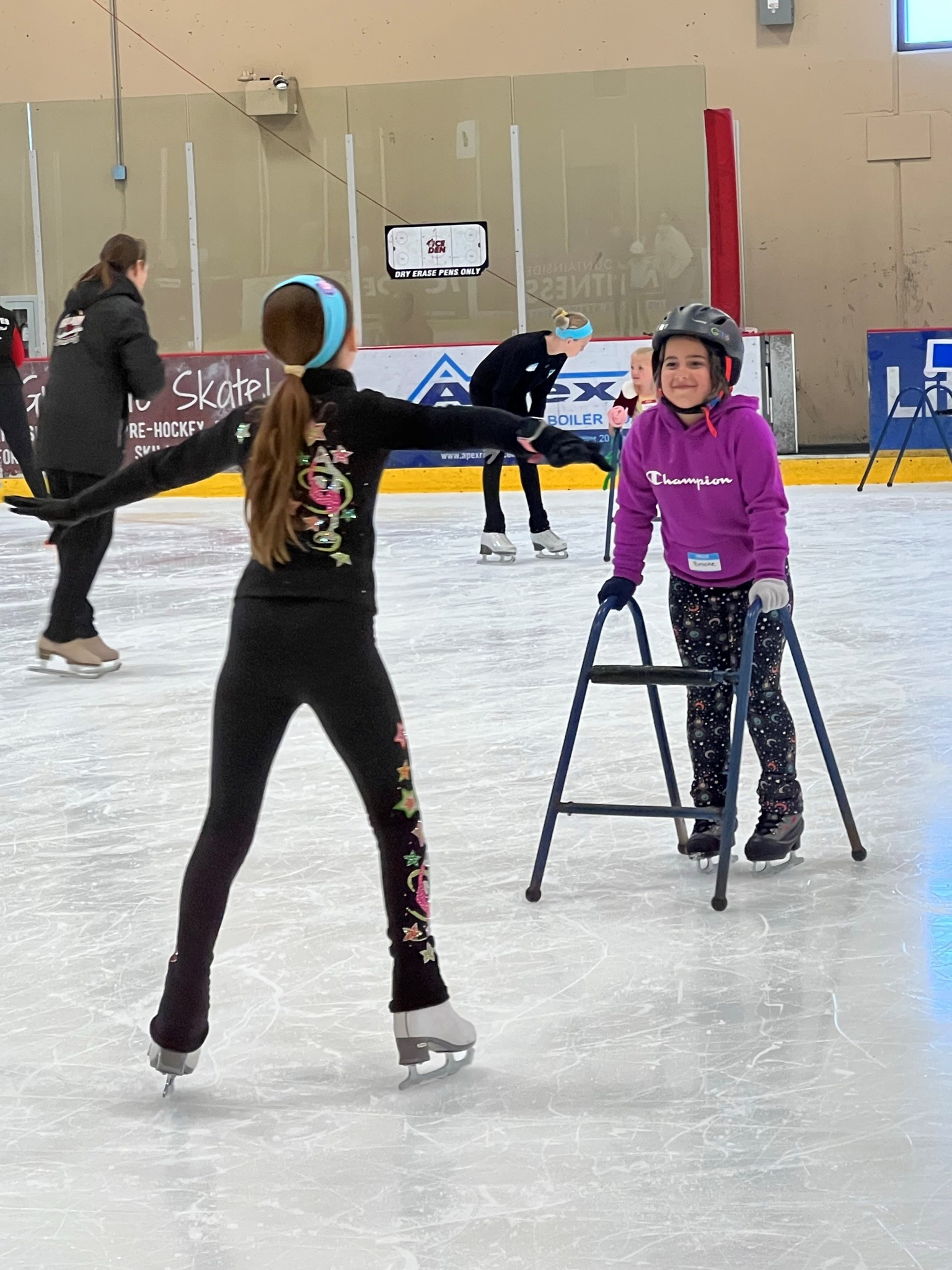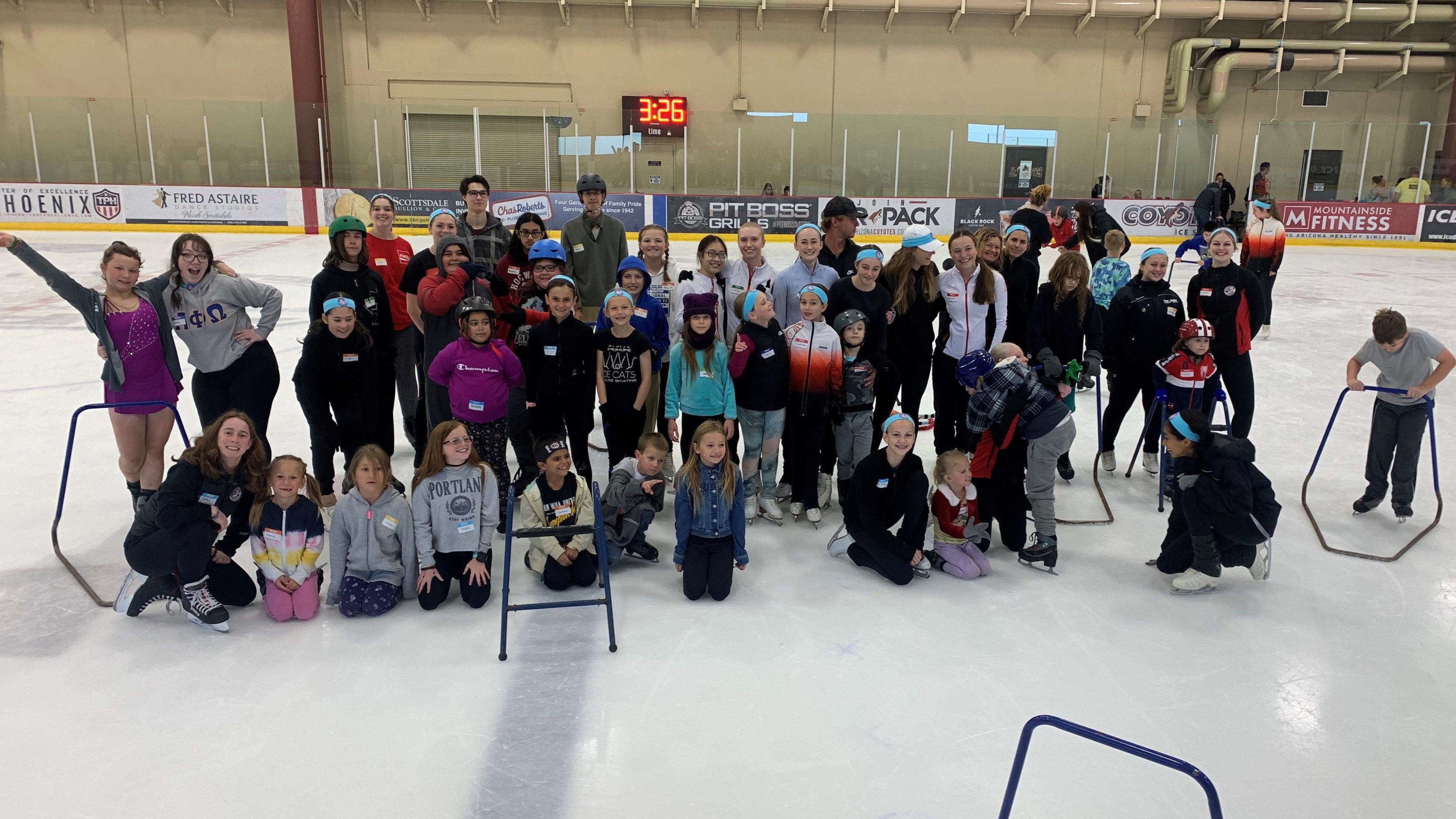By Robyn Clark
When she was a little girl, Sasha Rubin tried her hand at a variety of sports.
First, it was soccer. Then it was synchronized swimming. After that, she tried a bout with football. None of it held her interest for very long.
“What about figure skating?” Her mother suggested one day, as they sat debating what she should try next.

The nine-year-old agreed, so her mom signed her up for a Learn to Skate class. After just one lesson, Rubin was hooked.
“I made so many friends instantly– it was such a good environment,” the now 15-year-old said. “Everyone wanted you to improve and was so open to helping me learn new skills. It was very strict and demanding, but with ice skating, I was able to improve while still having the support I needed.”
In between studying for school and practicing skating, Rubin attended her younger brother Dean’s physical therapy sessions. He lives with autism and routinely went to mitigate the symptoms of his disability.
During the appointments, there was a routine: Rubin would spend most of it with her mom while Dean worked one on one with the therapist, and then, during the last five minutes, she was allowed in the room to play with him. She was always grateful for the time they had together.
“It was really important to me that I was able to connect with him where he spends the most time [and] makes such an effort to improve,” Rubin said.
Dean’s autism makes understanding emotions and connecting with others a challenge, so he and Sasha had to figure out the best way to communicate with one another. Their time together in physical therapy helped forge a strong bond between the two.
Not only was Rubin his sister, but she was also his biggest cheerleader.
“I was really proud of him,” she said. “I was always like, ‘This is my little brother! This is Dean.’”
As she got older, she noticed differences between their personalities: While she was bubbly and outgoing, Dean was quieter and more reserved. And while she thrived from being around her skating teammates, it was difficult for Dean to join any sort of organized activity.

A year ago, Rubin decided to try to bridge that gap. She approached Motivating and Orchestrating Respectful Interpersonal Achievement and Harmony (MORIAH), a nonprofit that connects children with disabilities with mentors, and Ice Den Scottsdale, the arena where she skates as a member of the Coyote Skating Club of Arizona, about the potential of collaborating to host an adaptive skating event.
Not only would she be introducing participants to something that was near and dear to her heart, but the dim lighting and low sound in a rink meant that skaters were less likely to become overstimulated.
Both organizations quickly jumped on board. MORIAH helped spread the word to the families they serve, and Julie Patterson, vice president of programming at Ice Den, donated the rink for the day as well as rallied the club’s skaters to serve as volunteers for the event.
There were several sets of hands working to make the event a success, but they were united by Rubin’s vision.
“I wanted [the skaters] to fall in love with skating the way that I did, and I wanted to show [them] that they were able to do it,” Rubin said. “Also, it was important that they just had fun. I wanted it to be a memory that both the kids and the parents looked back on.”
A few hours before the event, Rubin orchestrated training sessions for those who had signed up to volunteer. She went over best practices for facilitating accommodations, as well as walked through suggested coaching techniques to ensure that they were best equipped to assist the skaters that they would be working with. Before she knew it, it was showtime.
Upon arrival, skaters were split into groups based on their age. The volunteers paired with each group spent time connecting with their skaters, and after Rubin went over a few ‘dos’ and ‘don’ts’ with everyone collectively, it was time to hit the ice.
As she watched the groups explore the rink, Rubin was overcome with a wave of emotions. She was relieved that everything had gone off smoothly– the night before, nerves had made sleep evasive.
“I was so worried,” she said. “I was like, ‘What if everyone’s crying? What if no one comes?’”
Turns out, her fears had been for naught. As she watched volunteers and skaters alike enjoying themselves, she experienced something else: Gratitude.
Equally as special was watching Dean skate. Since they had skated together a few times before, she already knew he enjoyed it, but watching him at this event made her realize all over again how comfortable he was in a rink.
“It was like a combination of all the things I loved,” Rubin said.
The event was such a success that Rubin is planning to host another one this month. Though the skaters in attendance will be different and she’ll have to train a new set of volunteers, the heart behind the day remains the same: Celebrate the skaters for the many gifts and talents they have to offer the world and remind them that they always have a place inside of a skating rink.


